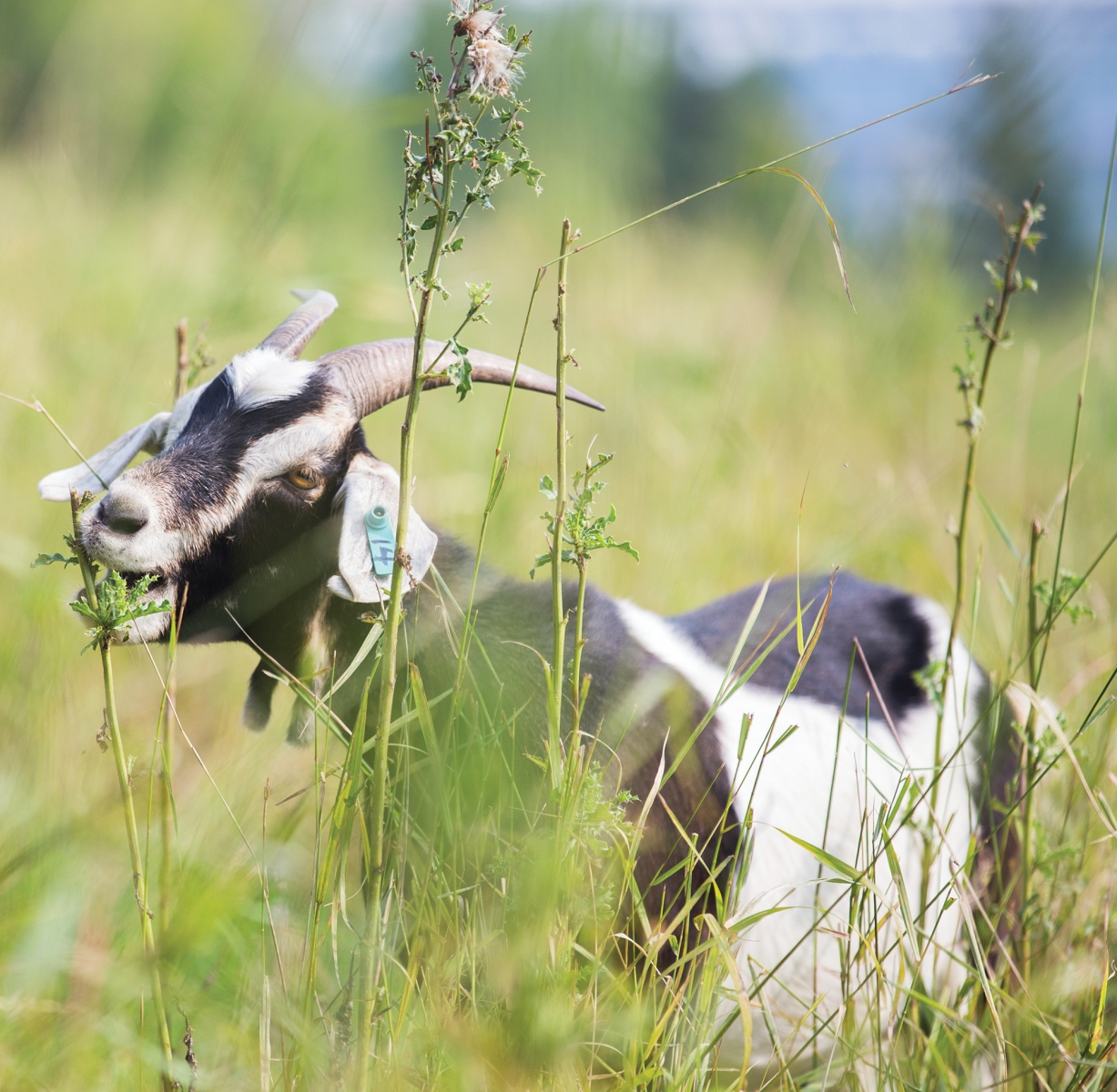Unlike many other animals you might spot on a farm, such as cattle and sheep, goats are browsers – this means that rather than grasses, they prefer to munch on broad-leaved, woody plants. And, since many noxious weeds fall into that category, they also provide an effective natural alternative to plant-management tools like herbicides. So, when the City of Edmonton changed its position on herbicides in 2015, moving to eliminate non-essential herbicide use on City-owned land, it started a three-year Goat Pilot Project to see how the creatures would fare in Edmonton’s parks.
Last year was the first year of the project, and the City is continuing to collect data. “Once we have another season of comparable data, we’ll have a better idea of what’s happening on the landscape,” says Joy Lakhan, GoatWorks Coordinator. “If our weed populations are decreasing, we’ll have an indication as to whether a project like this could be long-term.” While the City is working with Olds College on the research component of the pilot, for the actual handling of the goats it has contracted Baah’d Plant Management and Reclamation.
Jeannette Hall, owner of Baah’d Plant Management and Reclamation, is used to dealing with misconceptions. “People think that it’s easy or they have this idea of sun-tanning with goats. We are actively working and the area where I see industry getting in trouble in the future is people jumping on the bandwagon and thinking they can do this with any goat. Typically, if you brought a farmed goat in, it wouldn’t have the same effectiveness – farmed goats learn to eat what their parents have taught them to eat, which is what they’ve been exposed to in their pasture.”
While the City is still waiting for the data, the response from the public has certainly been enthusiastic so far. “In terms of our yegPark Facebook page, we had an increase of 3,000 followers,” says Lakhan. “We had requests for engagement with the goats, just day to day, and we had our public Meet and Bleat events, where we had almost 2,000 members of the public come out.”
